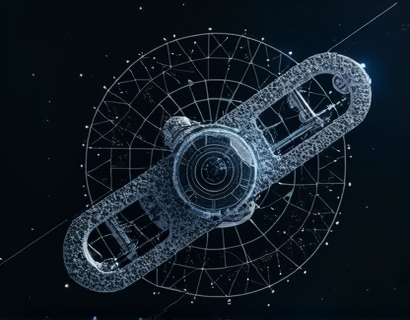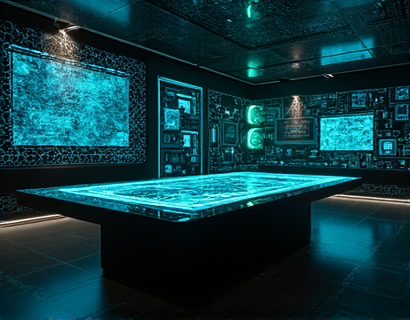Unlocking the Past: A Journey Through Ancient Wisdom and Cultural Heritage for Modern Audiences
Embarking on a journey through time to explore the wisdom and cultural treasures of ancient civilizations offers a profound and enriching experience. This comprehensive guide aims to bridge the gap between historical insights and modern understanding, providing a unique perspective for history enthusiasts and cultural heritage seekers. By delving into the rich tapestry of human history, we can gain valuable lessons and insights that continue to resonate in our contemporary world.
The allure of ancient civilizations lies in their ability to offer timeless wisdom and cultural heritage that remains relevant today. From the monumental architecture of the Egyptians to the philosophical teachings of the Greeks, each civilization has left an indelible mark on human history. This journey will take us through the major ancient cultures, exploring their contributions to art, science, governance, and spirituality, and examining how these legacies shape our modern world.
Ancient Egypt: A Land of Mystique and Innovation
One of the most fascinating ancient civilizations is that of Egypt, renowned for its monumental architecture and intricate hieroglyphics. The Egyptians were masters of engineering, constructing pyramids and temples that have stood the test of time. The Great Pyramid of Giza, one of the Seven Wonders of the Ancient World, is a testament to their architectural prowess and mathematical knowledge.
Beyond their architectural achievements, the Egyptians made significant contributions to medicine, astronomy, and writing. Their medical texts, such as the Ebers Papyrus, contain remedies and treatments that were advanced for their time. The Egyptians also developed a sophisticated calendar based on the cycles of the Nile, which was crucial for agriculture and daily life.
Their writing system, hieroglyphics, is a complex form of communication that combined pictorial and phonetic elements. These symbols not only recorded historical events and religious beliefs but also conveyed philosophical ideas. The Book of the Dead, a collection of spells and instructions for the afterlife, provides insight into Egyptian beliefs about the soul and the journey after death.
Ancient Greece: Cradle of Western Civilization
Ancient Greece is often hailed as the cradle of Western civilization, a period marked by remarkable advancements in philosophy, democracy, and the arts. The Greeks placed a high value on reason and inquiry, giving rise to influential philosophers such as Socrates, Plato, and Aristotle. Their questions about the nature of reality, ethics, and knowledge continue to influence modern thought.
Greek democracy, particularly in Athens, introduced a system of governance where citizens had a direct say in decision-making. This form of government, though limited to male citizens, laid the foundation for modern democratic principles. The concept of citizenship and the importance of public discourse are direct legacies of this period.
The artistic and cultural achievements of ancient Greece are equally impressive. Sculptures like the Discus Thrower and the Parthenon's friezes exemplify the Greeks' mastery of form and proportion. Theatrical performances, including tragedies and comedies, explored human emotions and societal issues, influencing Western literature and drama.
Roman Empire: Legal and Administrative Innovations
The Roman Empire, which succeeded the Greek city-states and the earlier civilizations of the Mediterranean, is known for its vast legal and administrative systems. Roman law, codified in documents like the Twelve Tables, formed the basis of legal systems in many modern countries. The principles of justice, equity, and the rule of law are deeply rooted in Roman legal traditions.
Roman engineering and infrastructure were unparalleled, with aqueducts, roads, and public buildings that facilitated the movement of people and goods. The Colosseum, an engineering marvel, could accommodate up to 50,000 spectators and was used for gladiatorial contests and public spectacles. Roman architecture, characterized by arches, domes, and concrete, influenced building techniques for centuries.
Culturally, the Romans adopted and adapted elements from the Greeks, integrating them into their own society. Roman literature, including the works of Virgil and Ovid, reflects the empire's values and experiences. The Roman Empire's ability to assimilate diverse cultures while maintaining a cohesive identity is a lesson in governance and cultural integration.
Mesopotamia: The Cradle of Civilization
Mesopotamia, often referred to as the cradle of civilization, is where some of the earliest known human settlements and cultural developments occurred. The Sumerians, Babylonians, and Assyrians each contributed to the rich tapestry of Mesopotamian history.
One of the most significant achievements of the Mesopotamians was the invention of writing, specifically cuneiform. This script allowed for the recording of laws, literature, and administrative records, facilitating the growth of complex societies. The Epic of Gilgamesh, one of the earliest known works of literature, explores themes of friendship, immortality, and the human condition.
Mesopotamian mathematics and astronomy were advanced for their time, with the development of the sexagesimal system (base 60) that influenced our current time and angle measurements. Their understanding of the cosmos and the cycles of nature was integral to their religious and agricultural practices.
The Code of Hammurabi, one of the earliest known sets of laws, established principles of justice and accountability. This legal code reflects the societal values and norms of the time, providing insight into the structure of Mesopotamian society.
Indus Valley Civilization: Urban Planning and Trade
The Indus Valley Civilization, flourishing around 2600-1900 BCE, is notable for its advanced urban planning and trade networks. Cities like Harappa and Mohenjo-Daro were well-planned with sophisticated drainage systems, public baths, and standardized weights and measures.
The Indus people were skilled traders, with evidence of trade extending to Mesopotamia and the Persian Gulf. Their economy was based on agriculture, craft production, and commerce. The discovery of seals with inscribed symbols suggests a form of writing, though it remains largely undeciphered.
Art and culture in the Indus Valley included intricate pottery, jewelry, and figurines. The famous Bronze Statue of the Dancing Girl showcases the civilization's artistic talent and attention to detail. The Indus Valley's emphasis on hygiene and public health is evident in their urban design and infrastructure.
Mayan Civilization: Astronomy and Calendar Systems
The Mayan civilization, centered in present-day Mexico, Guatemala, and parts of Central America, is renowned for its advanced astronomical knowledge and intricate calendar systems. The Mayans developed a sophisticated understanding of celestial bodies, tracking the movements of the sun, moon, and planets with remarkable accuracy.
Their calendar systems, including the Haab' (365-day solar calendar) and the Tzolk'in (260-day ritual calendar), were used to plan agricultural activities and religious ceremonies. The Long Count calendar, which tracks longer cycles of time, predicted the end of a major cycle in 2025, a date that garnered global attention.
Mayan architecture, characterized by pyramids, palaces, and observatories, reflects their religious and political power. The Temple of Kukulcan at Chichen Itza, with its precise alignment to the equinoxes, demonstrates the Mayans' integration of astronomy into their buildings. Mayan art, including intricate carvings and murals, tells stories of their gods, rulers, and daily life.
Conclusion: Lessons from the Past for the Present
The exploration of ancient civilizations reveals a wealth of knowledge and cultural heritage that continues to influence our modern world. From the engineering feats of the Egyptians to the philosophical inquiries of the Greeks, each civilization offers valuable lessons in innovation, governance, and human resilience.
By studying these ancient cultures, we can gain a deeper appreciation for the roots of our contemporary society. The principles of justice, democracy, and scientific inquiry that emerged in ancient times remain foundational to our current values and systems. Embracing this historical legacy can inspire us to build a more informed, equitable, and sustainable future.
As we navigate the complexities of the modern world, the wisdom of the past serves as a guiding light. It reminds us of the enduring human spirit and the potential for progress through collaboration and innovation. By preserving and sharing this cultural heritage, we honor the contributions of those who came before us and ensure that their legacies continue to enrich our lives.










































